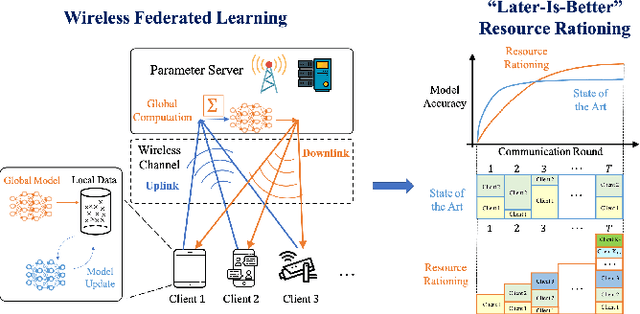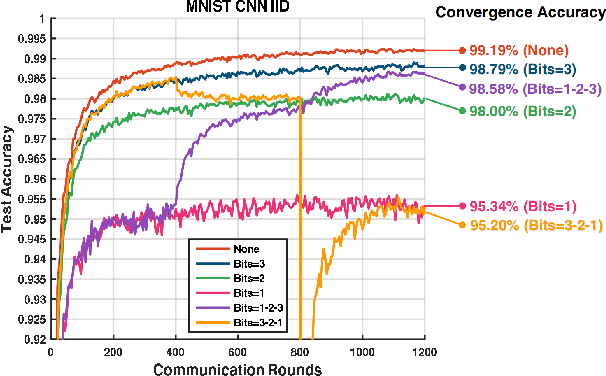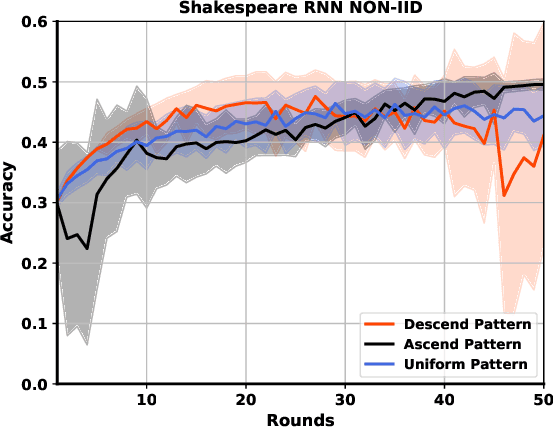Resource Rationing for Wireless Federated Learning: Concept, Benefits, and Challenges
Paper and Code
Apr 14, 2021



We advocate a new resource allocation framework, which we term resource rationing, for wireless federated learning (FL). Unlike existing resource allocation methods for FL, resource rationing focuses on balancing resources across learning rounds so that their collective impact on the federated learning performance is explicitly captured. This new framework can be integrated seamlessly with existing resource allocation schemes to optimize the convergence of FL. In particular, a novel "later-is-better" principle is at the front and center of resource rationing, which is validated empirically in several instances of wireless FL. We also point out technical challenges and research opportunities that are worth pursuing. Resource rationing highlights the benefits of treating the emerging FL as a new class of service that has its own characteristics, and designing communication algorithms for this particular service.
 Add to Chrome
Add to Chrome Add to Firefox
Add to Firefox Add to Edge
Add to Edge